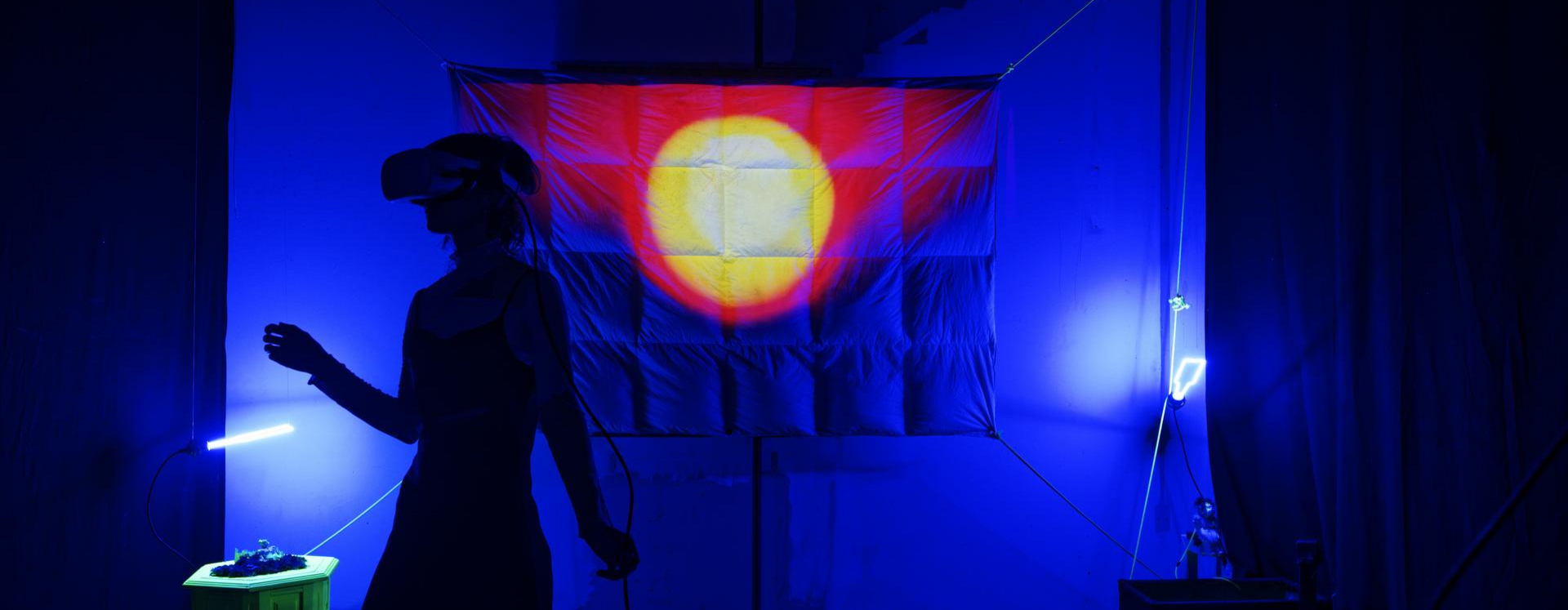Free to work: how to use performative elements in cinematic storytelling
In an interview during shooting of her 2014 graduation project, Agnese Cornelio (1978) expounds on her research of the relation between theatre and film.
"As a theatre director, I gained some experience in documentary theatre by working with common people who shared their experience or expertise on stage. On stage I had to organize them as characters in a play. It’s a great way to involve an audience into reflection and to approach fiction. In this documentary theatre practice, I started using video as a research instrument and I integrated this research in the performance. In settings with actors, however, the use of video has never been simple to me because video then interferes with the abstraction of theatre language. Nevertheless, the introduction of a video screen as an extra language the performers have to deal with, can lead to interesting dynamics, first of all the conflict between video as a more or less finalized representation on one hand and a live performance, subject to a huge variety of constantly changing variables, on the other.
In theatre, everything you perceive is part of the performance, real-time determining the creation of illusions. As a cinema spectator, I always perceived the ‘window on the world’ as more real than what I could achieve in theatre. Cinema offers me an experience of emotions while theatre shows me the mechanism of affects. When I combined these notions with the idea to investigate the effects of labour in the lives of workers through film, I realized that I would need a specific setting. A kind of laboratory.
Free to work
In my project Free to work I focus on the close relation between labour and identity. People’s jobs deeply influence their attitude, their physicality, their imagination, their sense of time, et cetera. In Italian culture, labour and identity are strongly related. In 1946, the founders of the Italian Republic stated a strong connection between democracy and labour, by opening the new constitution with the sentence: “Italy is a democratic republic based on labour”. They made every citizen politically responsible of the res publica through his labour. In my project, I work with Italian migrants who had different jobs in Holland over the last 50 years. While they share their stories one of the main issues of integrating in a foreign country emerges: they construct their personal identity through their profession.
Perceive the construction
I interview these workers as if I worked with actors. In a studio, I ask them to re-enact certain key experiences from their working lives. By doing so, I try to catch evidence of their former everyday lives. I ask them to show their tasks, to reconstruct their workflow and even to recall a particular scene, with the dialogues, the attitude of the persons involved, where they were standing… Asking questions, constructing dialogues, raising doubts: I am playing and re-questioning the certainty of the documentary images and the production modus of it. In this project I focus on the way bodies can tell stories, their own stories. The body of a worker shows traces, if not scars, inscribed during his working life. It cannot lie about the relation between personal and professional identity.
Creating meaning
Dealing with work means also to negotiate with a long story and tradition of representation of labour. To give an example, we follow a retired worker to his home in Delft. In his working life, he used to be politically engaged in labour union work. We see him walking in his quite nice neighborhood and accidentally he walks in strong backlight against a background of factory chimneys. This image tells a
story we all know because we share a huge collective memory of powerful images, from the Lumière brothers to Ken Loach. In a way, this works like double exposure: the vast archive of knowledge makes me project new significance onto the image. It was a simple experience, but an important moment in my learning process. Something ordinary can suddenly redefine reality.
April 2014



